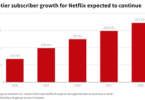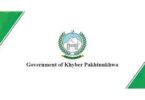F.P. Report
LAHORE): SAARC Chamber of Commerce and Industry (CCI) President-designate Iftikhar Ali Malik on Friday welcome Pakistan’s donation of $3 million towards emergency fund for SAARC nations to fight pandemic called for closer cooperation among national health emergency agencies and a long-term economic recovery plan for the region.
Talking to a trader’s delegation led by internationally acclaimed SME expert Rehmat Ullah Javed here today, Iftikhar Ali Malik suggested that SAARC should adopt a shared telemedicine framework to provide health care to remote areas.
He said this is good sign that all the SAARC countries are ready now to fight this lethal coronavirus outbreak collectively and he also appreciated Pakistan’s suggestion to hold a SAARC health ministers video conference to enhance cooperation and proposed establishing a working group of national authorities to exchange information and data in real time.
Sri Lanka reiterated the need to work together, create social awareness, and have one central depository to disseminate information.
He said South Asians have long suffered from intraregional tariff and nontariff barriers that make it difficult to move goods and people across borders. “Home to one-fourth of the world’s poorest people, the region has disproportionately high trade costs, poor logistics infrastructure, and inefficient trade facilitation.
He said the promise of regional trade in South Asia estimates that the trade within the region could be worth $67 billion rather than its recent value of $23 billion. South Asia also has significant constraints on its services trade, even though the services sector accounts for more than half of the economies in Bangladesh, India, Pakistan, and Sri Lanka.
Iftikhar Malik said the region’s countries now have an opportunity to come together to remove tariffs on medical devices, protective gear, disinfectants, and soap, and they have started to do so. “They must also act to avoid restrictive actions by importers and exporters that could reduce global supply and affect critical supply chains, especially tariffs on food and other necessities,” he added.
Rehmat Ullah Javed said the crisis is an opportunity to put aside traditional concerns and take joint action. “Short-term collaboration to fight the pandemic could bring longer-term benefits by strengthening regional institutions, improving regional infrastructure and connectivity, advancing trade policy, and developing cross-boundary solutions to shared issues,” he added.
Winding up dialogue with delegation Iftikhar Malik said South Asia has achieved significant progress through cooperation in the power sector, and that experience can be applied to special priority areas such as food security, critical logistics, and health services.






